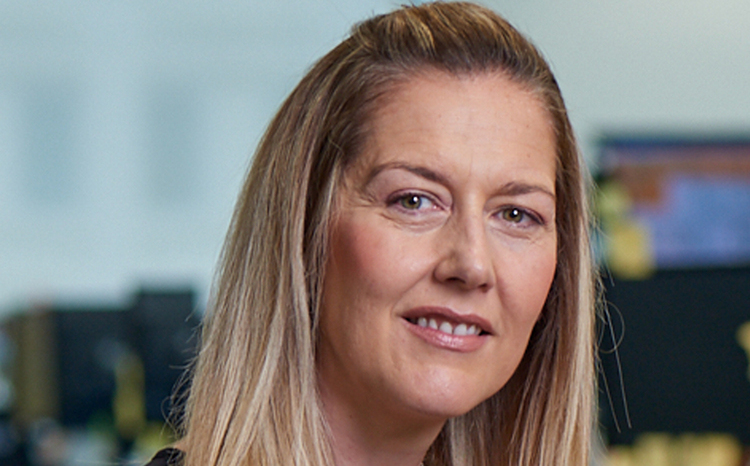Digital Health interview: Ali Parsa

Ali Parsa is best known for his success at the helm of Circle, the healthcare company he co-founded in 2004.
Circle, which has small private hospitals in Bath and Reading, grew rapidly and, in 2011, won the contract to run Hinchingbrooke Hospital for the NHS.
Parsa stood down as the chief executive of Circle in 2012, after an initial public offering, and before the “inadequate” rating from the CQC that led to Circle pulling out of Hinchingbrooke; which now looks set for some kind of merger with Peterborough’s acute trust.
Phoning the future
A few months after leaving, Parsa set up a new venture, Babylon Health, which provides healthcare services through mobile phones. So why the change of direction?
“When you've run a hospital, you realise that 95% of people's healthcare needs have nothing to do with hospitals,” Parsa says. “It's for consultations, diagnostics, all the usual things that you and I use healthcare for, and yet we do things in the most absurd archaic way.
“And while that makes it expensive and inconvenient for you and me, it makes it almost impossible for 50% of the world's population to have access to healthcare.”
Almost everyone has a mobile phone, he says, so the idea behind Babylon is to see “whether there’s a way we can give an affordable, accessible health service to every human being on earth.”
That seems unfeasibly ambitious (it’s difficult to see how mobile phones can provide a health service without a backup infrastructure: and at some point somebody has to pay for that). But Parsa sees himself as a disruptor, sweeping away old models of healthcare provision.
The problem with some mobile health providers, he says, is that they mimic traditional models of healthcare, instead of looking at what patients really need from a healthcare service.
“The biggest GP practice in the country”
At the moment, Babylon offers several different services, covering, between them, 300,000 users. The biggest of these enables users to have a consultation with a GP by phone or videophone, arranged quickly and without long waiting times.
The user pays a monthly subscription of £4.99 for unlimited GP consultations over phone or videophone, available seven days a week if they’re in the UK, six days a week if they’re in Ireland. Babylon now employs 100 GPs, making it “the largest GP practice in the country”.
GPs are able to write a prescription, which is sent directly to the patient’s local pharmacy. A clinical record is held securely by Babylon, which users can opt to share with their NHS GP, and includes recordings of each consultation.
Patients can also be referred by the Babylon GP to a specialist: this consultation costs £49 for subscribers or £79 for non-subscribers.
If a patient wants simply to ask a question of a GP (the example Parsa gives is of someone sending in a picture of a mole and asking whether it’s something they need to worry about), they can do so for free through the babylon app.
New services and paying customers
At the end of last year, prompted by the discovery that mental health problems were among the top five issues that patients were asking the GP service about, the company launched a therapy service. Users pay £39 for a phone or video consultation.
More recently, Babylon has introduced an app called Monitor: patients can choose to monitor a wide range of measures, including pulse, cholesterol, calorie intake or blood pressure.
In some cases, the patient enters the information manually, but in others the app is able to synchronise with a piece of wearable technology. When the patient has a GP consultation, the GP can see that data.
As well as offering the babylon service directly to patients, the company has a deal with two NHS GP practices in Southend to enable patients with less complex problems to consult the babylon service six days a week.
After eight months, says Parsa, 15% of all consultations in those practices are being carried out on babylon, and standard patient waiting time has fallen from three weeks to one week. The company is now hoping to offer the service to larger practices, but Parsa says that this is proving a slow process.
Babylon is also offering its service to insurance companies such as Bupa and directly to employers (it now has 70 corporates on board) so that staff can consult with a Babylon GP in their lunch-break rather than taking time off to visit their GP.
Making it work in Rwanda; and around the world
The model Babylon has developed is one that Parsa believes can work anywhere. Later this year, the company will launch the GP service in Rwanda, in partnership with the Rwandan government, though details of pricing have not yet been announced.
As in the UK, users will consult a GP over the phone (the service has been adapted for use on feature phones), but the shortage of doctors in Rwanda means potentially that the impact could be much bigger.
“We're going to spend this year figuring out how to provide healthcare in one of the richest countries in the world, and how to do it in of the poorest countries in the world,” Parsa says.
“Having done that, and figured it out, we will try and expand aggressively in other countries. If we can do it in the UK, it's not that different in Germany, France, Sweden or other places. And if we do it in Rwanda, it's not that different in Kenya, or Ghana.”
The race for AI
But the biggest shake-up to traditional healthcare may come with Babylon’s venture into artificial intelligence. In the next few weeks, the company will launch an AI triage tool in the UK, drawing information from medical databases created by its own experts.
Users will be able to ask questions and receive advice about what to do next, such as consult a doctor, go to a pharmacy, or attend A&E. In tests, says Parsa, the tool has proved more accurate than doctors and nurses.
The triage tool, which will launch initially in the UK, will be free; but later in the year Babylon plans to launch an AI diagnostic app. It’s not clear yet whether this will also be free; Parsa says that he will “figure out a way of making money once they [the products] have been created and can add real value.”
These AI tools will gradually improve by learning from the consultations carried out by the company’s GPs. If all goes well, the company will extend the AI apps to Ireland, and then possibly further afield.
(Babylon is not the only business with plans in this direction; Your.MD is also planning a full launch of an AI app later this year, having put out a beta version for people to use to improve its accuracy last November.)
Ambitious, certainly
Parsa’s vision is an ambitious one. Increasing demands on the health service, and the government’s willingness to introduce private companies into the NHS, suggest that there is plenty of opportunity for the business to expand its service in the UK – and it may work in other countries.
Parsa certainly believes that mobile technology makes it possible to disrupt the status quo by removing artificial divisions between physical health and mental health, and primary care and secondary care. “In the virtual world,” he says, “all these barriers fall apart.”




